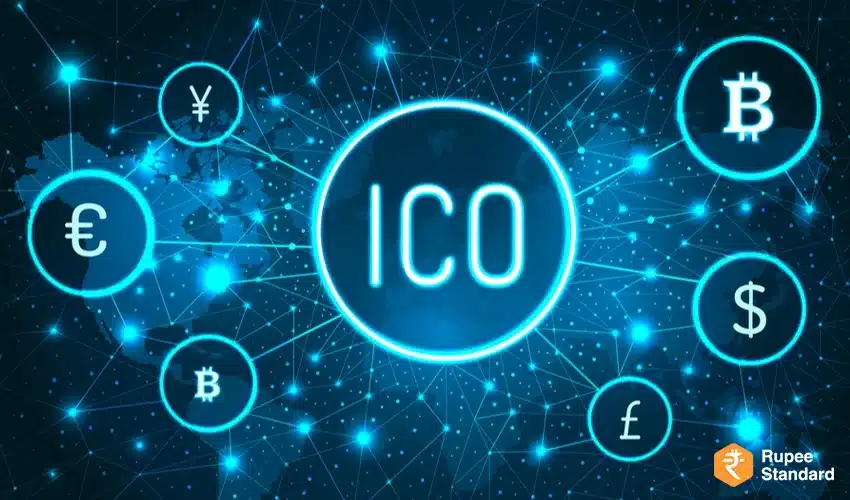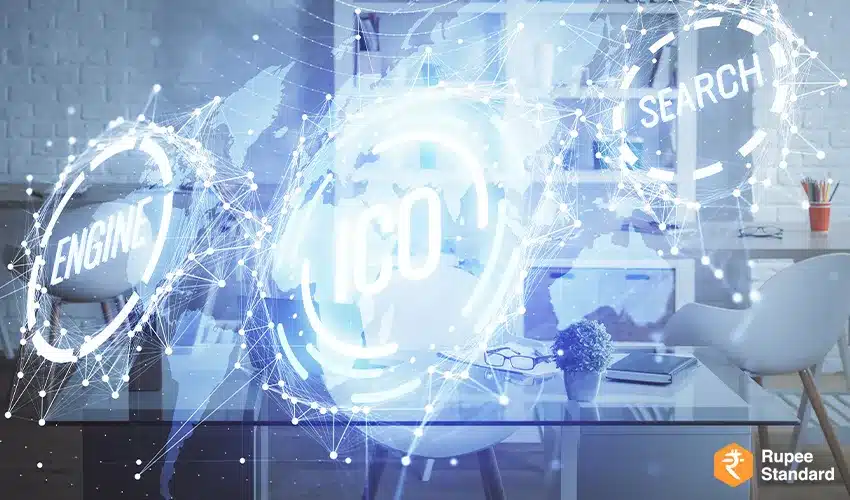What is an Initial Coin Offering (ICO)?
An Initial Coin Offering, commonly referred to as an ICO, is a fundraising method used by blockchain-based projects to raise capital. It is also referred to as Initial Token Offering.
The process involves the issuance and sale of digital tokens or coins to investors and enthusiasts in exchange for established cryptocurrencies. These tokens are often native to the project’s ecosystem and can represent various utilities, such as access to services, voting rights, or potential future profits.
How does an Initial Coin Offering work?
ICO Initial Coin Offering typically follows a structured process, which can be summarized as follows:
- Project conceptualization
- Token generation
- Pre-ICO and marketing
- ICO launch
- Token distribution
Project conceptualization
The project team conceptualizes a blockchain-based project and identifies its goals, features, and potential use cases.
This includes outlining the project’s whitepaper, which serves as a comprehensive document describing the project’s vision, technology, team, and tokenomics.
Token generation
Another important step undertaken by the project team is that they create a new digital token or coin that will be sold during the ICO.
The token can be built on an existing blockchain platform, such as Ethereum, or developed on a custom-built blockchain specifically for the project.

Pre-ICO and marketing
Prior to the official ICO launch, many projects opt to conduct a pre-ICO phase to generate initial interest and funding. During this phase, the project team typically offers exclusive bonuses or discounts to early contributors.
Simultaneously, marketing efforts are undertaken to raise awareness about the project and its upcoming ICO.
ICO launch
The official ICO commences with the opening of token sales to the public. Interested individuals can participate by sending established cryptocurrencies to the project’s designated wallet address in exchange for the newly issued tokens.
The token sale usually has a specific duration or a predetermined hard cap (maximum fundraise limit).
Token distribution
Once the ICO concludes, the project team distributes the purchased tokens to the participants’ wallets.
These tokens can either be immediately tradable on supported cryptocurrency exchanges or subject to a vesting period, during which they cannot be transferred or traded.
ICO in India: Here’s where it stands now
The regulatory approach towards ICOs in India has been cautious, with concerns over investor protection, money laundering, and potential risks associated with unregulated digital assets.
The Reserve Bank of India (RBI) has issued several warnings about the risks associated with cryptocurrencies and directed regulated entities from dealing with them.
Securities and Exchange Board of India (SEBI), the country’s securities market regulator, has not yet provided clear guidelines specifically for ICOs. However, it has indicated that securities laws may apply to certain ICOs if they qualify as securities offerings under existing regulations.
Government initiatives
The Indian government has shown interest in exploring the potential of blockchain technology while maintaining a cautious stance towards cryptocurrencies.
The Ministry of Electronics and Information Technology (MeitY) has established several blockchain-focused initiatives to foster innovation and research in the field.
However, it’s important to note that the government’s position on ICOs remains ambiguous, and there have been discussions about the possibility of introducing a regulatory framework for digital assets, including ICOs.

Investor protection
Given the lack of specific regulations, investors in India are advised to exercise caution when participating in ICOs. It is essential to conduct thorough due diligence on the project, team, and token economics.
Investors should also be aware of the potential risks associated with investing in unregulated digital assets and the lack of legal recourse in case of fraudulent activities.
Important aspects of an Initial Coin Offering
Now that you have a clear understanding of what Initial token offering or coin offering is, here are some other important aspects you should know.
- Whitepaper
- Regulatory compliance
- Token utility
- Team and advisors
- Security considerations
Whitepaper
The project’s whitepaper is a vital document that provides in-depth information about the project’s technology, vision, roadmap, team members, tokenomics, and potential risks.
Investors should carefully review the whitepaper to assess the project’s legitimacy, viability, and alignment with their investment goals.
Regulatory compliance
ICOs operate in a regulatory gray area in many jurisdictions. However, it is crucial for projects to comply with applicable laws and regulations to maintain credibility and protect investors’ interests.
Regulatory frameworks vary by country, and potential investors should consider the project’s compliance efforts and legal opinions obtained.
Token utility
Understanding the utility and purpose of the tokens being offered is crucial. Investors should assess whether the tokens serve a genuine function within the project’s ecosystem, such as access to services, governance rights, or potential profit-sharing mechanisms.

Team and advisors
Evaluating the project’s team members and advisors is essential for assessing their expertise, experience, and track record. A strong team with relevant industry knowledge can significantly enhance the project’s chances of success.
Security considerations
Participating in an ICO involves certain risks, including the potential for scams, hacking attempts, or technical vulnerabilities. Investors should exercise caution and conduct thorough due diligence to mitigate these risks.
Verifying the project’s security measures, smart contract audits, and conducting background checks on the team members can help assess the project’s security posture.
Initial Coin Offering: An integral part of the cryptosystem
Initial Coin Offerings (ICOs) have become a prominent fundraising mechanism within the blockchain industry, allowing projects to raise capital and develop innovative decentralized solutions.
However, potential investors must approach ICOs with caution, conducting thorough research and due diligence to ensure they are making informed investment decisions.
Understanding the project’s whitepaper, regulatory compliance efforts, token utility, team expertise, and security considerations are crucial aspects to consider before participating in an ICO.
By equipping oneself with knowledge and vigilance, investors can navigate the ICO landscape and potentially seize opportunities in the emerging blockchain ecosystem.
For more such interesting updates on the crypto ecosystem, keep checking back with us at Rupee Standard. Enhance your knowledge and skills in crypto trading today.


